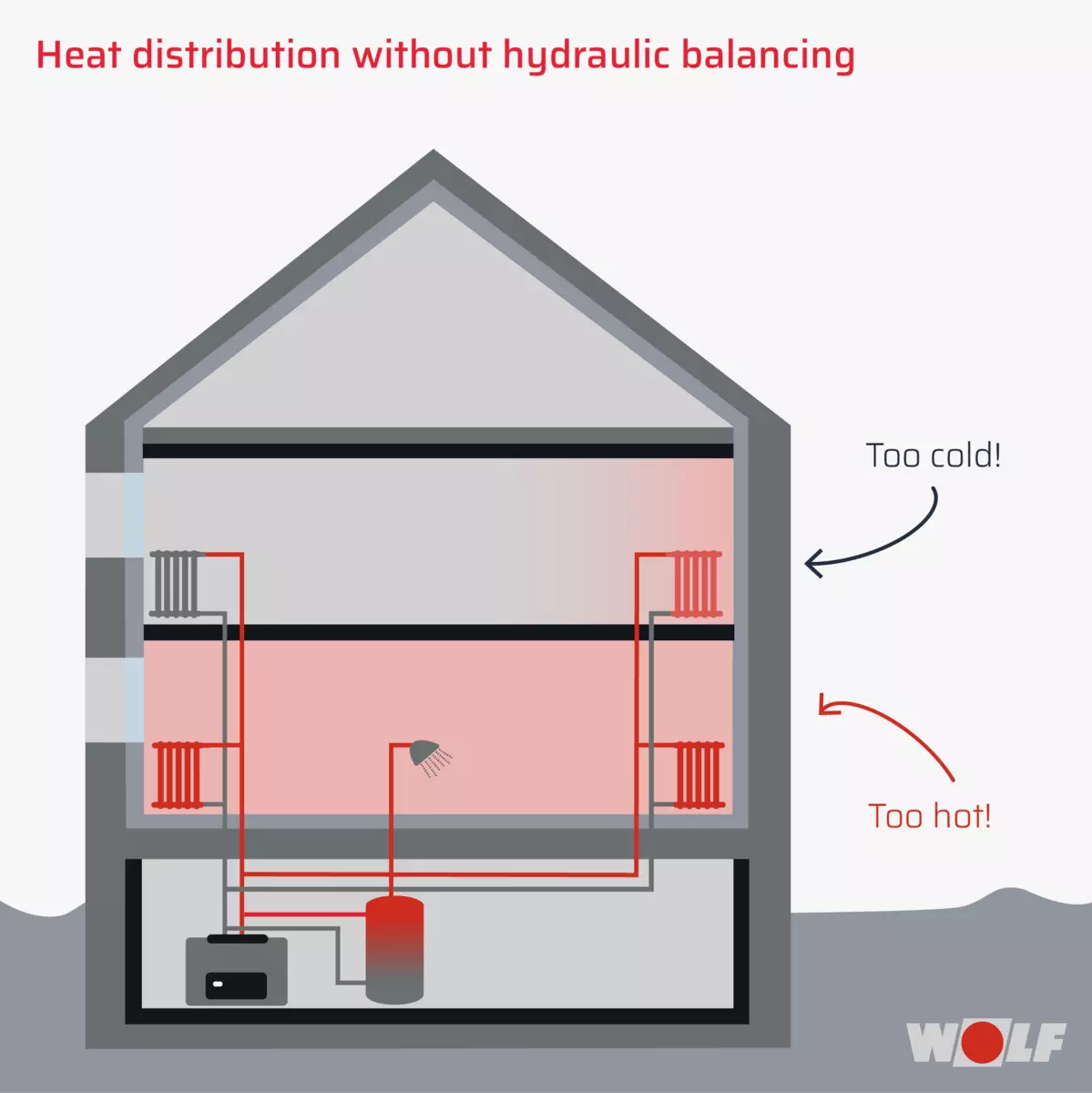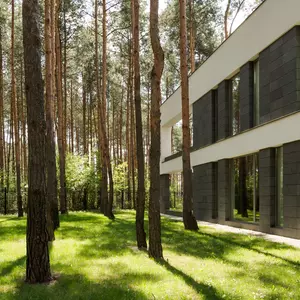Underfloor heating systems can be balanced, and it is a useful procedure. However, it is more complicated and therefore more expensive than balancing conventional radiators.

Hydronic balancing of heating systems
Everything you need to know
Having your heating system hydronically balanced is a good way to reduce the ecological footprint of a heating system and lower the heating costs. The balancing process is often referred to as “optimising” a heating system.
What is hydronic balancing of a heating system?
The aim of hydronic balancing in a heating system is to distribute the heat evenly to all radiators. In unbalanced systems, some rooms are often overheated while the radiators in other rooms remain relatively cold.
Professionals often refer to this process as “hydraulic adjustment”. To balance the system, the technician calculates the sizes of the rooms, wall and window surface areas and the distances of the individual radiators from the heating pump.
They then use these calculations to adjust the heating pump, the thermostatic valves, the temperature and the volume of water in the system. This results in a consistent heating output in all rooms and an optimum heating curve.
Heat distribution without hydronic balancing
If the heating system is not hydronically balanced, the radiators nearest to the heating pump are oversupplied with hot heating water while the radiators further away are undersupplied.
This is because water always follows the path of least resistance. As less heating water is arriving in the more distant radiators, the valves on these are turned up higher.
As a consequence, the rooms that were already well heated become overheated. If occupants now open the windows in these rooms due to the heat, the thermostatic valves are triggered and draw even more hot water. This wastes an unnecessary amount of energy and needlessly increases the emission of pollutants.
Benefits and drawbacks: hydronic balancing of heating systems
Benefits
- The heating system uses less fuel to produce the same heating output
- The amount of emissions produced by the heating system drops due to lower fuel consumption
- The heat is evenly distributed to all rooms and storeys
- You save money in the long run
- A well-regulated heating system improves the comfort of your home
- Annoying rushing noises are eliminated
Drawbacks
- Hydronic balancing of heating systems must always be conducted by experts
- Hydronic balancing costs somewhere between a few hundred euro and over €1000.
Hydronic balancing: example calculation of the cost and payback period
The cost of having a detached house hydronically balanced is between €650 and €1250 depending on the size and number of radiators. Experts estimate that you can save an average of €2 on heating per year and per m² of living space.
Let us assume a worst-case scenario: you have paid €1250 for balancing services and your house has 140 m² of living space. In this case, you can save €280 on heating costs per year so you will recoup the cost of hydronic balancing after 4.5 years.
The actual cost of hydronically balancing a heating system depends on many factors so you should request estimates from various companies in advance.
Further questions regarding the hydronic balancing of heating systems
Balancing is generally beneficial in heating systems of any size. It not only saves you heating costs in the long run, it also protects the environment.
Unfortunately not. Experts estimate that around 80% of all heating systems in Germany are not hydronically balanced.
Only heating contractors have the special knowledge and instruments that are needed to balance a system properly. So you should never attempt to hydronically balance your heating system yourself; employ an expert instead.
Even modern condensing boiler can be optimised by balancing. During the process, the return temperature in particular is set as high as necessary but as low as possible. This improves the efficiency of the heating system.
Basically at any time. You do not need to switch off the heating or drain off the heating water to balance a system.
Hydronic balancing of heating systems is worthwhile
Hydronic balancing is beneficial for just about any heating system. The costs are recouped within only a few years. As well as lowering your heating bills, balancing also protects the environment as it reduces emissions.
It also makes your home more comfortable and pleasant as it eliminates annoying rushing noises.





